We are pleased to welcome 11 fellows into our new Research Fellowship program. To introduce our fellows, we asked them to tell us one thing that has surprised them about technology for global development in their field of study. See their answers below.
We have launched a Research Fellowship for engineering students engaged in global development, supported by a grant from the United Engineering Foundation (UEF). The Fellowship is a new offering from E4C’s Innovation Lab, which supports the development of knowledge tools for designers, manufacturers and implementers of poverty‐alleviating products and services. Fellows will deepen their understanding of development engineering through research, analysis and normalization of solutions presented on the E4C Solutions Library and engagement with the E4C community of experts. It is E4C’s aim that the UEF Supported Research Fellowship will open opportunities and prepare future generations of development professionals committed to delivery of fit-for-service solutions. The fellowship started on May 2nd and will run for the whole summer up until the first week of September.
Interested in becoming a fellow? Please contact us at admin@engineeringforchange.org.
Q: What is one thing that has surprised you about technology for global development?
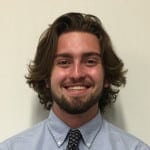 Brett Abele
Brett Abele
Brett Abele graduated from Pennsylvania State University in May 2016 with a bachelor of science in biological engineering and a minor in environmental engineering. He is carrying out his fellowship in Xai Xai, Mozambique, where he will also conduct research for Penn State’s Humanitarian Engineering and Social Entrepreneurship program in his spare time.
Farmers across the world face problems that are inherently similar; however, how different farmers deal with these problems varies greatly from region to region, especially in resource-constrained settings. Throughout my research and studies I am continually surprised at how technology is designed for developing communities without taking into account indigenous practices and cultural norms within the targeted communities. Designers and engineers can develop a great product, but at the end of the day, if the product is not able to be easily integrated into the end-user’s way-of-life, the designers are delivering a product and not a solution.
Instagram: @babele_30
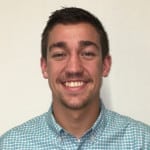 Thomas Decker
Thomas Decker
Tom Decker holds a B.S. in Environmental Resources Engineering from the SUNY College of Environmental Science and Forestry and is a candidate for a M.S. in Mechanical Engineering from Colorado State University. He enjoys building crazy awesome stuff, riding his motorcycle and continuing the path to lifelong learning.
An outside perspective may view a technology as only a gadget. Something that was invented in a garage or laboratory and evolved into a marketable product…this is no small feat by the way! As I learn more about technology for global development, I find that the gadget that we see on the surface is actually a complex and evolving web of processes, people and money. A technology’s success depends on the built in development, manufacturing, marketing, distribution and quality processes, a strong and dynamic team and a group of financial supporters. Each of these components must be robust and well thought out to be resilient against the unstable nature of the developing world. I admire the tech companies who have succeeded thus far in the developing world, now that I have learned what it takes to succeed.
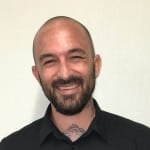 Craig Fairbaugh
Craig Fairbaugh
Craig Fairbaugh is pursuing a M.S. degree in Environmental and Water Resources Engineering at Portland State University. His research includes using UAV’s for environmental assessment of a water filter and cookstove intervention project in Rwanda. Craig is also an active member of Portland State’s Engineers Without Borders chapter and is currently working on a sanitation project for a K-8 school in Ethiopia.
Innovation in global development engineering never ceases to amaze me. Often communities face a lack of resources and require new solutions to solve traditional engineering problems, or use different methods and materials. New insights in efficiency and sustainability are often bred from developing communities.
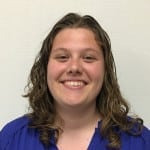 Molly Mollica
Molly Mollica
Molly Mollica studied at Ohio State University, earning her Bachelor of Science in Biomedical Engineering and her Master of Science in Mechanical Engineering with research focuses in mechanobiology, drug delivery, DNA nanotechnology, and electronic toy adaptation. In the fall, she will begin her PhD in Bioengineering at the University of Washington.
The importance of remembering the end user somehow surprises me over and over again. As an engineer, it seems easy to get caught up in optimizing technical aspects and, in doing so, forgetting to focus on exactly what the user wants and needs. It doesn’t matter how finely tuned the technical specifications are if the product is not designed in a manner that is feasible and culturally sensitive for the future user.
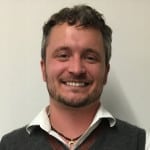 Charles Newman
Charles Newman
Charles Newman, an architect by training, has designed and built hundreds of structures across the East Africa region. Much of his work has blended unconventional building materials with traditional, established construction methods. In August, Mr. Newman will begin his Master’s research at Harvard University’s Graduate School of Design, focusing on participatory planning and design as a means to mitigate threats of climate change and human conflict.
When it comes to both technology and method solutions towards effective global development, I am consistently surprised with how much I do not know. Having built numerous structures, often having spent months designing each, being corrected by a local mason or community leader is a regular occurrence. Human capacity and the appropriateness of locally sourced solutions never ceases to amaze me.
Twitter: @afritekt
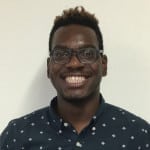 Nicholas Okafor
Nicholas Okafor
Nick Okafor, from Dallas, TX, is a recent graduate of Washington University in St. Louis where he studied mechanical engineering and sustainable development. Passionate about the intersection of design, development, and education, he is excited to start his career empowering others to create social impact.
My biggest surprise within technology for global development is the fact that so much is out there, yet we still struggle in providing wide access to basic human needs. There are hundreds of iterations of the water filter. The same can be said about dry-composting toilets and solar flashlights; the list goes on and on. Relatively, this tech is individually effective, but these products don’t have the intended community impact. This made me realize that the global issue isn’t with the technology, but with implementation, which shifted my own personal research to analyze what factors can promote efficacy within development projects and maximize their potential.
 Justine Rayner
Justine Rayner
Justine Rayner is a PhD candidate in Civil and Environmental Engineering at Tufts University. Her research focus is on the use of appropriate technology to address access to safe drinking water, sanitation, and hygiene with a focus on locally manufactured ceramic pot filters for household drinking water treatment.
Human behavior.
[No image available. Icon by Lil Squid from the Noun Project]
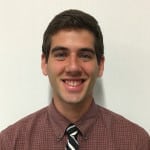 Sean Reischel
Sean Reischel
Sean Reischel is a rising senior Environmental Engineering major with a minor is Sustainability Studies at the University of Maryland: College Park. He was last year’s E4C summer intern, and conducted research on many of the products featured in the Solutions Library.
There never is a correct answer to an existing problem. There are good and bad answers, but no answer is ever correct. The future of sustainable development is creating a bigger distance between good and bad solutions as more and more data continues to be collected.
Twitter: @Reischel_Sean
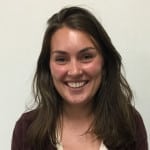 Mathilde Sirbu
Mathilde Sirbu
Mathilde Sirbu is a Master’s student at Columbia University, in the Energy track of the Mechanical Engineering program. At Columbia, she is working with the Sustainable Engineering Lab to help address development issues, which opened her eyes on the opportunities available for Engineers in developing countries.
When it comes to providing Energy access, Engineers keep developing innovative ways to improve the lives of the poorest communities. Instead of going to the station and pay expensive fuel gas, you can now produce your own biogas from animal manure or cactus. Producing biogas from cow manure allows farmers to invest money saved from switching from expensive gas in caring for their children. In fact for emerging communities, energy is the essential foundation for everything else, education, health, economic development. These technologies are a great opportunity for emerging countries to leapfrog the in-developed established approach. Picturing our ways of living in a few decades, I can’t help thinking that all of us will end up with this kind of biogas systems in our backyard. And of course, being French, hearing about a Mexican farmer producing cheese from animal manure really impressed me: what if his cheese happened to taste better than the French ones?
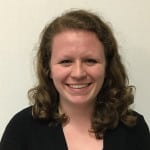 Caroline Soyars
Caroline Soyars
Caroline Soyars graduated from the University of Michigan with a bachelor’s degree in biomedical engineering. Her experiences in global development include a two-month clinical immersion in Kumasi, Ghana, designing an appropriate and low-cost medical device for low-resource settings for her senior capstone design project, and an internship in the Medical Devices Unit at the World Health Organization.
The huge gap between the amount of technologies that are being developed and the amount of technologies that are available in low-resource settings. From my experiences, I have seen that despite the large number of technologies being developed for global health there are very few of these technologies available in the areas that need them most. More efforts need to be channeled into ensuring that technically sound and appropriate solutions are scaled-up and maintained in the target settings.
 Emily Pang
Emily Pang
I am an undergraduate student at Stanford University studying mechanical engineering with a focus in biomechanics. My mission is to build well-designed tools to alleviate problems in healthcare. I have sought to gain a myriad of experiences in the space of healthcare innovation through work in and exposure to biomedical research, digital health, surgical robotics, medical device development.
I have had the fortune to take part in incredibly enriching experiences in global development – I work with the nonprofit Human Engineers, Inc. to build prosthetic limbs for low-income patients in the Philippines, have traveled to China to evaluate potential implementation of health technologies, and am going to Uganda this upcoming summer with Stanford’s School of Engineering to improve the design and delivery of healthcare services in maternity wards. One thing that has both surprised and humbled me is the magnitude and interconnected nature of these global development problems that technology seeks to solve. It is impossible to consider or focus on one aspect of global development without recognizing its subsequent impact in other areas that you may never planned for or expected.
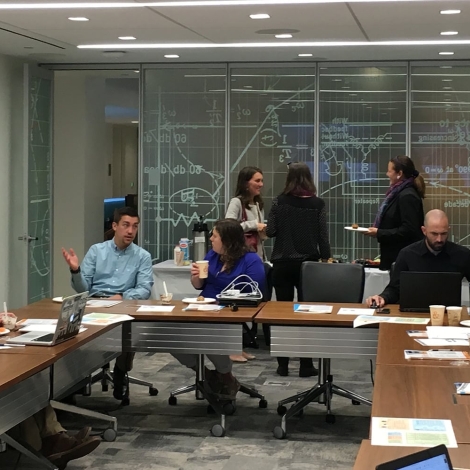
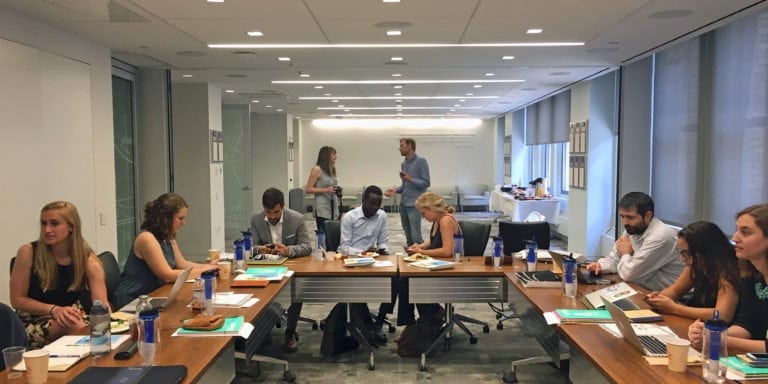
But all the fellowship awardees seems to be from the advanced world. i rather will like to see diversity in the award of fellowship opportunities, especially people from the developing countries.where most people live on less than a dollar a day.where most people has never seen or touch a computer before.and to refugee women and children.giving them life and hope for a better future..
this is my personal opinion.
Yes, I agree and I’m sure I speak for my colleagues at E4C who would also agree with you. That would be ideal and nobody wants fellows with that kind of background more than we do at E4C. The short answer as to why we haven’t is resource limitations. This year required that we limited our geographic reach to North America to simplify the program launch. In the future we aim to expand the Fellowship internationally. That said, our Fellows are diverse and have conducted their research in Mozambique, Mexico, China, Uganda, Ghana and Haiti.
I hope that eases your mind a bit, for what it’s worth. Thanks for reading and for sharing your thoughts.
wish to understand first to support in line to my known engineering products be from : mechanical, electrical & electronics,, safety cctv surveillence,, UPVC window & doors,, PVC doors,,
Do you have internship programs for postgraduate students?
Is there any opportunities for Indian school students